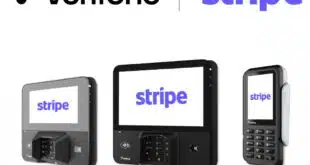It’s been one bump after another for the Chicago Transit Authority’s new Ventra fare-payment system that includes a contactless prepaid MasterCard Inc. card. The latest came today when the chairman of a Chicago-area transportation oversight board dubbed Ventra’s rollout a “systemic failure” and called for an audit of the fare program.
“Obviously we’ve had unacceptable and systemic failure there,’’ Regional Transportation Authority chairman John S. Gates Jr. said at a monthly meeting, according to the Chicago Sun-Times. “Obviously this has morphed into much more than a computer glitch.”
The RTA oversees the budgets of the CTA and two other public transit providers in Chicago and its suburbs. Gates said he wanted a “rapid and independent” analysis of what’s gone wrong with Ventra and how it may be affecting the CTA’s budget, the Sun-Times reported.
The CTA in 2011 awarded a 10-year, $454 million contract to San Diego-based Cubic Transportation Systems to implement Ventra. A spokesperson for Cubic declined to comment, saying the contract requires press questions to go to the CTA. A CTA spokesperson did not respond to Digital Transactions News’ requests for comment.
Over the past month, Chicago TV newscasts and newspapers have been filled with stories about double charges to Ventra accounts, glitches in activating new accounts, new cards coming late in the mail, and unresponsive customer-service phone lines. Last week, Ventra turnstiles at 60 rail stations malfunctioned during the height of an evening rush hour, forcing CTA workers to wave through 15,000 riders at no charge. Also last week, administrators at some local companies reported seeing private information about Ventra-linked tax-benefit programs for employees of other companies pop up on their computer screens when they logged in to check their own such programs.
CTA president Forrest Claypool on Tuesday said that beginning this Friday the CTA would start issuing weekly progress reports about Ventra. Claypool has suspended the planned retirement of the CTA’s old fare media, which include two closed-loop contactless smart cards and magnetic-stripe fare cards, until Ventra’s problems are resolved.
A consultant who has worked in transit payments, Peter J. Quadagno, a partner with Atlanta-based Bank Solutions Group LLC, says he can’t speak from direct experience with Ventra but surmises that some of its problems stem from the demands the CTA placed in its request for proposals as it developed an open-fare payment program. To meet those requirements, other bidders were asking for much more than Cubic, says Quadagno, who at the time was working with a consortium that included Samsung, prepaid card provider InComm and processor Fidelity National Information Systems Inc. “The requirements demanded a level of performance that was unachievable,” he says.
Ventra allows fare payment not only through its own MasterCard, which is managed by processor First Data Corp. and issued by MetaBank, but also with general-purpose debit and credit cards that have a contactless chip.





